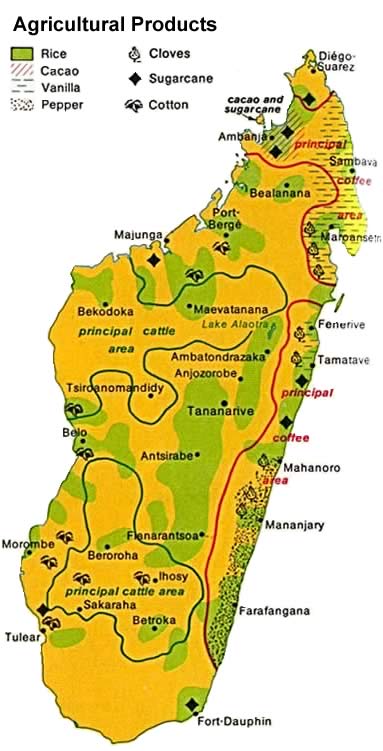This report gives good background on history of Madagascar and recent political activity and conflict. For tourists, you can stick with the summary.
SUMMARY:
Madagascar, an Indian Ocean island country, ranks among the world’s poorest countries, is the
world’s fourth largest island and is extremely biologically diverse, with thousands of unique
species of flora and fauna. It has experienced political instability since early 2009, initiated by
tensions between the country’s last elected president, Marc Ravalomanana, and an opposition
movement led by Andry Rajoelina, then the mayor of the capital city, Antananarivo. Mass
protests in early 2009 and eventual military support for the ouster of President Ravalomanana
culminated in his forced resignation from office. Rajoelina then seized power and, with other
leaders, formed an interim self-declared transitional government, the High Transitional Authority
(HAT, after its French acronym). Ravalomanana now lives in exile in South Africa.
Periodic protests by Ravalomanana supporters after the takeover led to violent clashes with
security forces. Negotiations between the parties led to the signing of an agreement in 2009 in
Maputo, Mozambique to establish an inclusive, transitional government, but Rajoelina
subsequently appointed a cabinet seen to be primarily composed of his own supporters. Southern
African leaders and Madagascar’s opposition parties rejected the proposed government, and
negotiations resumed. Two later agreements also failed to result in a unified transitional process.
The unconstitutional change of power and resulting political impasse have negatively affected
economic growth and development efforts and strained Madagascar’s relations with international
donors. Foreign governments, including the United States, reacted to Rajoelina’s seizure of power
by sanctioning the government in various ways (e.g., through suspension of membership in some
multilateral bodies, restrictions on aid, personal sanctions on some individuals, and removal of
trade benefits). Aid restrictions have significantly decreased public spending. As a result of the
coup d’état, U.S. aid is restricted to selected humanitarian and development programs delivered
through non-governmental channels. Madagascar’s Millennium Challenge Account compact,
worth an estimated $110 million, was terminated in May 2009. Madagascar is also subject to aid
restrictions due to its poor performance in addressing the problem of trafficking in persons.
Until September 2011, when a Southern African Development Community (SADC)-mediated
transitional roadmap was signed by most key political movements, international mediation and
national efforts to agree upon a transition process had foundered. Notwithstanding continuing
political disputes, implementation of the roadmap has gone relatively smoothly. In April, a
political amnesty law was enacted, but it remains controversial, as it does not cover former
president Ravalomanana due to his conviction for murder in absentia in August 2010, and he has
not been permitted to return to Madagascar. An impasse over these issue has long stymied the
transition process.
Madagascar faces a host of environmental pressures, however, and illegal logging and
endangered wildlife exports have reportedly substantially increased under the HAT. Congress has
expressed concern with threats to Madagascar’s unique ecosystem, as well as with the country’s
ongoing political and development challenges. The House of Representatives passed legislation in
2009, H.Res. 839, condemning the 2009 coup and the illegal extraction of Madagascar’s natural
resources.
CRS Report on Madagascar's Political Crisis
by Lauren Ploch and Nicolas Cook




